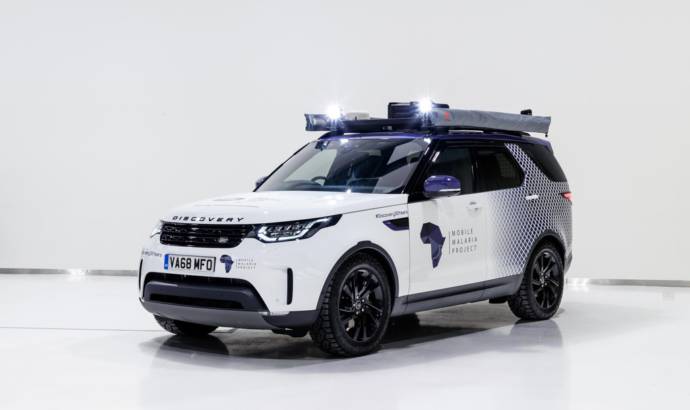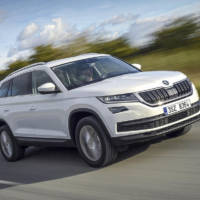Land Rover can build you almost any car you want, with though capabilities. The most recent creation is based in the current generation Discovery and was built together with Mobile Malaria Project, winners of the 2018 Land Rover Bursary in partnership with the Royal Geographical Society (with IBG), as it heads to sub-Saharan Africa to embark on a unique eight-week journey of Discovery.
The Mobile Malaria Project will travel more than 6,300km across Namibia, Zambia, Tanzania and Kenya. Driving a specially-modified Land Rover Discovery, they will investigate the challenges facing those on the front line of malaria control in Africa – where 90 per cent of the world’s cases occur.
Designed and developed by Land Rover Special Vehicle Operations, the Discovery is equipped with a mobile genetic sequencing laboratory that makes full-use of the vehicle’s 1,137-litre load space. Not only does it feature a fridge/freezer unit to safely store scientific supplies, there is also a bespoke load space configuration frame system with specially-designed storage equipment cases and an on-board expedition battery.
The exterior comes with bespoke additions too, including a purpose-built dual sun awning, rescue equipment, a winch, sand/mud tracks, expedition roof rack and LED night driving lamps.
These modifications will allow the team to trial portable DNA sequencing technology, in collaboration with African research centres, to better understand how the technology can be used in different locations. This will provide important information about malaria parasite and mosquito populations, including drug and insecticide resistance.
The Land Rover Discovery has a 30-year track record of tackling the most difficult terrain, reaching threatened habitats and vulnerable people across the world. Equipped with the latest all-terrain capability technology, the vehicle will allow the team to travel with confidence – no matter the conditions they face.



